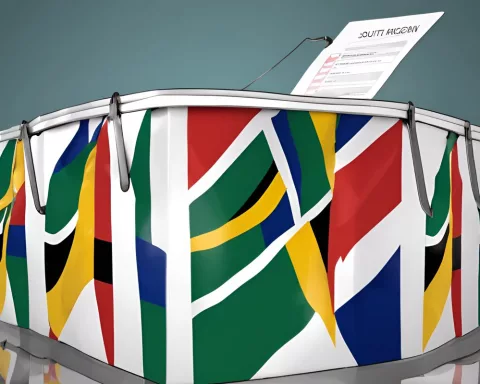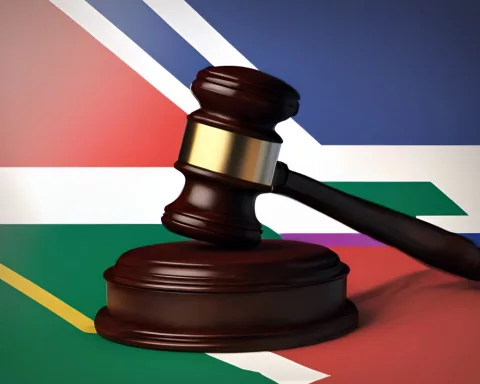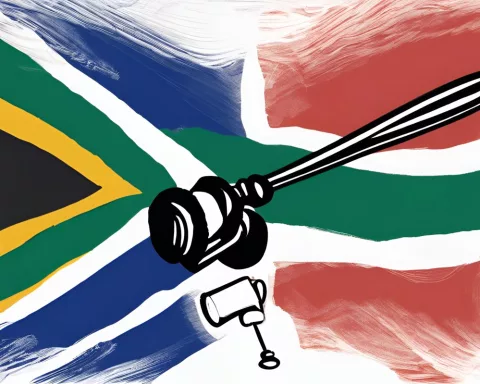EFF member Floyd Shivambu has failed in his attempt to overturn a ruling by the Joint Committee on Ethics and Members’ Interest that imposed a nine-day salary penalty for Shivambu’s non-disclosure of financial benefits received from Sgameka Projects. Shivambu had sought an urgent appeal to the Western Cape High Court, claiming he was unjustly denied the opportunity to be aware of the charges against him before the verdict was reached. Parliament approved the High Court’s decision, emphasising its dedication to maintaining ethical standards and reminding members of their dual responsibilities as political representatives and custodians of public trust.
Shivambu’s Ethical Misstep and Its Ramifications
Economic Freedom Fighter (EFF) member Floyd Shivambu faced scrutiny when a report from the Ethics Committee suggested that he had breached the Code of Ethical Conduct and Disclosure of Members’ Interests. The breach related to Shivambu’s non-disclosure of financial benefits received from Sgameka Projects Pty Ltd. As a result, the National Assembly imposed a nine-day salary penalty on Shivambu, which was upheld by the Western Cape High Court’s recent ruling.
Parliament has expressed its agreement with the Western Cape High Court’s ruling to reject the urgent appeal put forth by Economic Freedom Fighter (EFF) member Floyd Shivambu. The appeal was an attempt to overturn a judgement made by the Joint Committee on Ethics and Members’ Interest (Ethics Committee). The committee had resolved to impose a nine-day salary deduction on Mr. Shivambu. The news was made public on Friday 2nd February 2024, shedding more light on the persistent strain between the legislative assembly and the EFF member.
Shivambu’s Ethical Misstep and Its Ramifications
In October 2023, Shivambu found himself under scrutiny when a report from the Ethics Committee suggested that he had breached item 10.1.1.1 of the Code of Ethical Conduct and Disclosure of Members’ Interests for National Assembly and Permanent National Council of Provinces Members. The breach was related to Shivambu’s non-disclosure of financial benefits received from Sgameka Projects Pty Ltd. Shivambu had received a payment of R180 000 from the company in 2017.
In light of this revelation, the Ethics Committee, exercising its discretionary power, recommended that the National Assembly impose a nine-day salary penalty on Shivambu. This action was carried out on 28th November 2023.
The Court Plea and Its Rejection
Reacting to the verdict of the Ethics Committee, Shivambu sought legal redress and submitted a two-part plea to the Court. Initially, he sought a stay of execution on the Ethics Committee’s decision while awaiting the conclusion of the second part of his application. In the latter part, he appealed that the National Assembly’s adoption of the Ethics Committee’s report be re-evaluated and annulled.
Shivambu’s appeal to the Court was founded on his conviction that the probe against him was unjust. He argued that he was unjustly denied the opportunity to be aware of the charges filed against him before a verdict on his alleged guilt was reached.
Moreover, Shivambu contended that the money he received did not qualify as gifts but were transfers from his brother. According to the Ethics Code, gifts from family members are exempted from the requirement for declaration.
Shivambu expressed his belief that an urgent court hearing would protect the EFF’s ability to participate in elections without the impediment of a possibly flawed report. He communicated that his political party would face unfair disadvantages if the matter was not treated urgently.
However, the Court dismissed Shivambu’s claims. It ruled that the urgency was self-imposed, given Shivambu’s knowledge of the Ethics Committee’s decision in June 2023 and his delay to act until December. The Court also dismissed his argument about the EFF’s potential disadvantage, noting that the party was not a party to the case.
Consequences and Parliamentary Integrity
The Court also ruled that Shivambu should bear the cost of the application. This directive underscores the gravity of the charges against him and the confidence of the court in its judgement.
Interestingly, political parties with representation in Parliament are entitled to public funding for their political activities, calculated based on the number of seats they hold. Nevertheless, this development involving Shivambu puts a spotlight on the accountability and ethics of individual members.
Parliament’s approval of the High Court’s decision emphasizes its dedication to maintaining ethical standards and equitable practices. It serves as a potent reminder to all its members of their obligations, not only to Parliament but also to the citizens they serve.
As the saga continues, it may be advantageous to recall a potential statement from Ms. Haseenabanu Ismail, a Democratic Alliance member of the Portfolio Committee on Tourism. She might assert that every member of Parliament has a dual responsibility. They are not solely political representatives. They are also custodians of the public trust, and they must endeavour to uphold this trust in all their dealings.
What is the ethical misstep that led to the nine-day salary penalty imposed on Shivambu?
Shivambu’s non-disclosure of financial benefits received from Sgameka Projects Pty Ltd, a breach of the Code of Ethical Conduct and Disclosure of Members’ Interests, led to the nine-day salary penalty.
What was Shivambu’s response to the Ethics Committee’s decision?
Shivambu sought legal redress and submitted a two-part plea to the Court. Initially, he sought a stay of execution on the Ethics Committee’s decision while awaiting the conclusion of the second part of his application. In the latter part, he appealed that the National Assembly’s adoption of the Ethics Committee’s report be re-evaluated and annulled.
Why did the Court reject Shivambu’s appeal?
The Court dismissed Shivambu’s claims, ruling that the urgency was self-imposed, given Shivambu’s knowledge of the Ethics Committee’s decision in June 2023 and his delay to act until December. The Court also dismissed his argument about the EFF’s potential disadvantage, noting that the party was not a party to the case.
What are the consequences of the Court’s ruling?
Shivambu has to bear the cost of the application, indicating the gravity of the charges against him and the Court’s confidence in its judgement. This development also puts a spotlight on the accountability and ethics of individual members of Parliament.
What does Parliament’s approval of the High Court’s decision signify?
Parliament’s approval of the High Court’s decision emphasizes its dedication to maintaining ethical standards and serving its citizens. It is a powerful reminder to all members to uphold their obligations not only to Parliament but also to the public.
What is the potential statement from a Democratic Alliance member regarding this matter?
Ms. Haseenabanu Ismail, a Democratic Alliance member of the Portfolio Committee on Tourism, might assert that every member of Parliament has a dual responsibility. They are not solely political representatives. They are also custodians of the public trust, and they must endeavour to uphold this trust in all their dealings.












